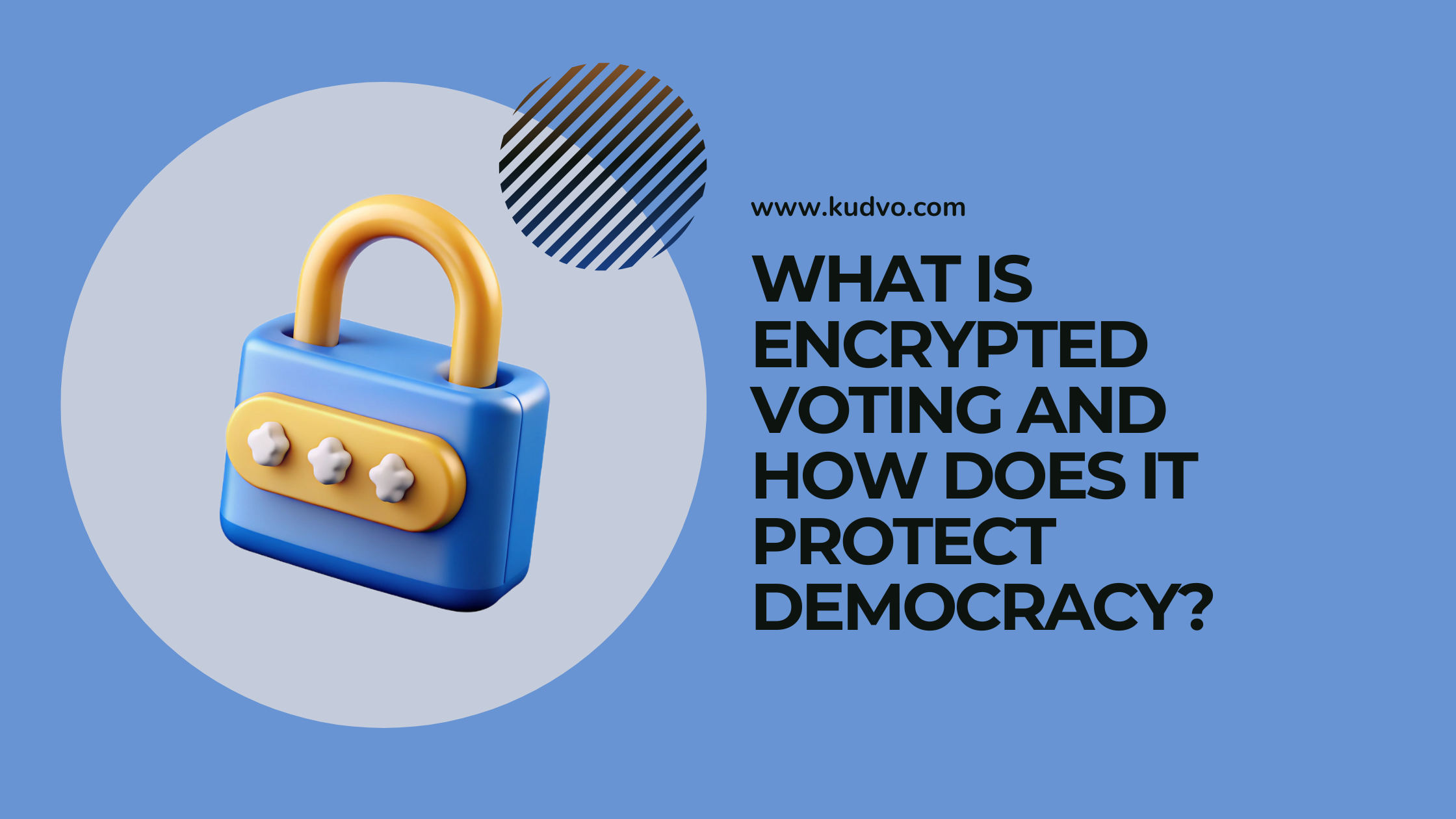Encrypted Voting: How It Protects Digital Democracy
Introduction
Can you trust an online election if your vote isn’t truly private—or worse, if it could be changed without you knowing?
In today’s increasingly digital world, more organizations and governments are exploring online voting. But with that shift comes serious concerns about privacy, security, and election integrity. That’s where encrypted voting steps in. It’s a game-changer for safeguarding democracy in the digital age.
In this post, we’ll break down what encrypted voting is, how it works, and why it matters. You’ll walk away with a solid understanding of how encryption can protect your vote—and the entire electoral process.
Want a secure voting platform with built-in encryption? Check out Kudvo, trusted for safe and scalable online elections.
1. What Is Encrypted Voting?
At its core, encrypted voting uses cryptographic techniques to protect ballots from being read, altered, or traced back to individual voters.
It works by scrambling your vote into unreadable code using mathematical algorithms. Only authorized systems (not even the administrators) can decrypt the vote—and only after it's been safely cast and counted.
Key features:
End-to-end encryption: Votes are encrypted from the moment they’re cast until results are counted.
Anonymity: Voter identities are separated from ballots.
Tamper resistance: Encrypted data is nearly impossible to modify undetected.
Think of it like sending a locked message in a bottle—only the intended recipient (the vote counter) has the key to open it, and no one along the way can see what’s inside.
2. Why Encryption Is Critical in Online Voting
Without encryption, digital votes could be vulnerable to interception, tampering, or identity leaks. Here’s how encrypted voting strengthens election integrity:
1. Secures Voter Privacy
Prevents anyone from seeing who you voted for—even system admins.
Protects voters from coercion, threats, or retaliation.
2. Stops Vote Tampering
Encrypted ballots can't be altered without detection.
Ensures that your vote reaches the digital ballot box exactly as you cast it.
3. Builds Public Trust
Transparent encryption methods increase confidence in the system.
Even skeptics can verify that results haven’t been manipulated.
Stat Snapshot: A 2023 global survey found that 68% of respondents would be more likely to participate in online elections if end-to-end encryption was guaranteed.
3. How Encrypted Voting Works (Simplified)
While the technical side can get complex, the basic flow looks like this:
Voter logs in through a secure authentication process.
Vote is cast and immediately encrypted on the voter’s device.
Encrypted vote is transmitted securely to the election server.
Votes are stored in a secure, tamper-evident database.
Decryption and counting happen only after voting ends, using cryptographic keys.
Audit logs and cryptographic proofs allow independent verification—without compromising privacy.
Bonus: Some systems even allow voters to verify their vote was received and counted correctly, without revealing its content.
4. Real-World Use Cases of Encrypted Voting
Encrypted voting isn't just theoretical—it’s already being used around the world:
Estonia: One of the first countries to hold national elections online, with encryption at its core.
University elections: Many academic institutions use encrypted voting for student government or faculty decisions.
Corporate governance: Companies rely on encrypted online voting for board decisions and shareholder input.
And platforms like Kudvo are helping schools, businesses, and governments run secure, encrypted elections without needing to build the infrastructure from scratch.
Conclusion
Encrypted voting is the backbone of secure online elections. It ensures privacy, security, and trust—the pillars of any democratic process. As we move further into the digital age, embracing encryption isn’t optional—it’s essential.
Want to see encrypted voting in action? Explore Kudvo—a secure, transparent, and user-friendly online voting platform designed to protect democracy in every vote cast.
